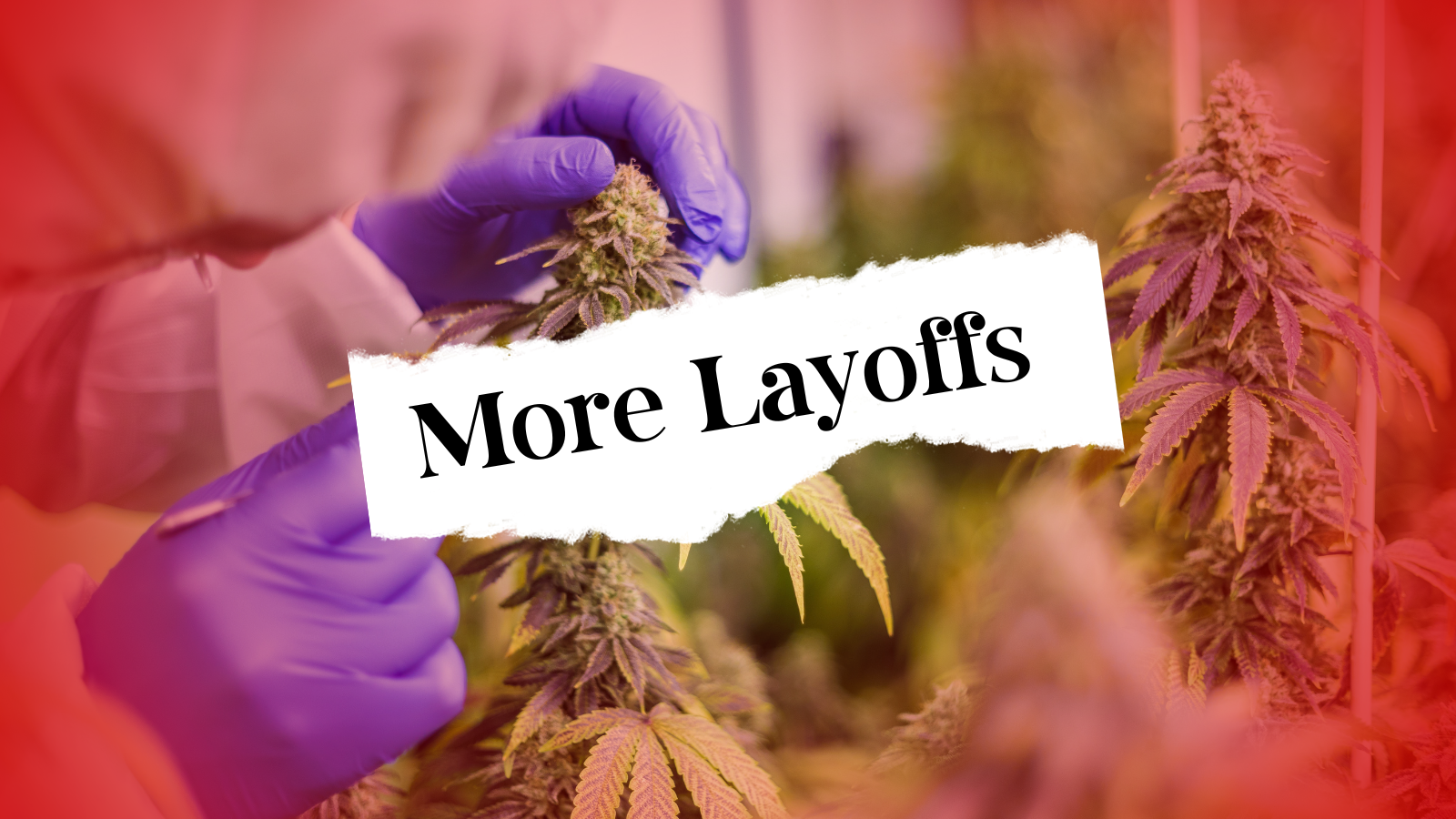The cannabis industry in Alberta has been grappling with significant challenges, leading to the recent layoff of approximately 50 workers by Atlas Global, a prominent cannabis company. This move has not only affected the lives of the employees but also raised concerns about the overall state of the industry in the province. In this article, we will delve into the reasons behind these layoffs, examine the impact on the local community and economy, explore similar instances of job loss in the cannabis industry, and discuss the challenges faced by rural Alberta in attracting investments. We will also shed light on the employees’ reactions, the lack of response from Atlas Global, and the need for lower tax rates and better access to credit. Finally, we will analyze the statement from Alberta Gaming, Liquor and Cannabis (AGLC) and draw conclusions about the future of the cannabis industry in Alberta.
Introduction to the Layoffs at Atlas Global in Alberta
Atlas Global, a well-established cannabis company, recently made the difficult decision to lay off approximately 50 workers and shut down its cannabis facility in the hamlet of Gunn, Alberta. Located about 60 kilometers northwest of Edmonton, the facility was responsible for both growing and packaging cannabis products. In a news release, Atlas Global CEO Bernie Yeung explained that the closure of the Alberta facility was necessary to reduce costs, streamline operations, and increase profit margins. As a result, the company will now focus its packaging operations in Chatham, Ontario, which raises concerns about the local impact and implications for the Alberta cannabis industry.
Reasons behind the Layoffs and Relocation
The layoffs at Atlas Global and the subsequent relocation of packaging operations to Ontario can be attributed to the struggles faced by the cannabis industry as a whole. Over the past year, several prominent cannabis companies in Alberta, such as Aurora Cannabis and SNDL, have also experienced layoffs. These cost-cutting measures are a response to the challenges in the industry, including increased competition, regulatory hurdles, and the need to adapt to evolving market conditions. CEO Bernie Yeung’s statement reflects the company’s strategic decision to restructure operations and achieve financial stability in the face of industry-wide difficulties.
Impact on the Local Community and Economy
The closure of Atlas Global’s cannabis facility in Gunn has significant implications for the local community and economy. Angela Duncan, the mayor of Alberta Beach, emphasized the importance of job creation in Lac Ste. Anne communities, where many Atlas workers reside. While tourism plays a vital role in stabilizing the local economy, attracting investments and businesses to rural Alberta is a constant challenge. Issues such as unreliable broadband connections and a lack of health-care coverage contribute to the difficulties faced by rural areas in fostering economic growth. The layoffs at Atlas Global further exacerbate these challenges, impacting not only the affected workers but also the wider community.
Similar Layoffs in the Cannabis Industry
The layoffs at Atlas Global are not isolated incidents but rather part of a broader trend in the cannabis industry. Prominent cannabis companies like Aurora Cannabis and SNDL have also experienced workforce reductions and facility closures. For example, Aurora Cannabis announced layoffs and the shutdown of a facility in Edmonton, while SNDL cut 85 jobs from its Olds, Alberta location. These actions reflect the industry’s struggles to achieve profitability and adapt to a rapidly changing market. The current state of the cannabis industry in Alberta necessitates a closer examination of the regulatory environment and its impact on industry growth.
Challenges Faced by Rural Alberta in Attracting Investments
The challenges faced by Atlas Global and other cannabis companies in rural Alberta underscore the difficulties in attracting investments to these areas. Rural regions often lack the social support and infrastructure commonly found in large urban centers. Issues such as unreliable broadband connections and a lack of health-care coverage deter businesses from establishing themselves in these areas. Consequently, rural Alberta faces significant hurdles in generating job opportunities and fostering economic growth. The impact of these challenges extends beyond the cannabis industry, affecting the overall development and sustainability of rural communities.
Employee Reactions to the Job Loss
The announcement of the layoffs at Atlas Global came as a surprise to many employees, leaving them disoriented and uncertain about their futures. Several former Atlas Global employees, who prefer to remain anonymous due to non-disclosure agreements, have expressed their dismay and the disruptive effect the layoffs have had on their lives. Employees have been instructed not to return to the facility and have been advised to schedule appointments if they need to collect personal belongings. The sudden loss of employment has had a profound impact on these individuals and highlights the human toll associated with industry struggles.
Lack of Response from Atlas Global
Despite the significant impact of the layoffs and closure of its cannabis facility in Alberta, Atlas Global has not provided a public response to the situation. When contacted for comment, the company did not respond to inquiries from CBC News. The lack of communication raises concerns about transparency and accountability. In times of organizational changes and workforce reductions, it is crucial for companies to address employee concerns, provide clarity on the future of the organization, and engage with the broader community. The absence of a response from Atlas Global adds to the uncertainty surrounding the situation.
Overall State of the Cannabis Industry in Alberta
The layoffs at Atlas Global are indicative of the challenges faced by the cannabis industry in Alberta. The industry has experienced significant cost-cutting measures and job losses in recent times. Aurora Cannabis, one of the largest cannabis companies in the country, previously announced a workforce reduction of at least 12% and the closure of a facility in Edmonton. SNDL, formerly known as Sundial Growers, also implemented job cuts at its Olds, Alberta location. These developments underscore the need for a comprehensive assessment of the regulatory environment and its impact on the industry’s growth and sustainability.
Regulatory Environment and Its Impact on the Industry
Kieley Beaudry, representing the Alberta Cannabis Micro Licence Association, believes that Alberta’s regulatory environment plays a significant role in the struggles faced by the cannabis industry. Beaudry points out that the current business model, which involves paying a substantial portion of revenue to the government, creates significant difficulties for cannabis companies. Lower tax rates and more accessible credit options are crucial preconditions for the industry’s success and growth. Without supportive policies and regulatory changes, it is challenging for cannabis companies to navigate the competitive landscape and achieve long-term profitability.
The Need for Lower Tax Rates and Better Access to Credit
Lower tax rates and improved access to credit are essential factors in ensuring the viability and success of the cannabis industry in Alberta. The current tax structure, where a significant portion of revenue goes towards government fees, poses a substantial challenge to companies’ profitability. Additionally, limited access to credit further impedes growth and expansion opportunities. To foster a thriving cannabis industry, policymakers must consider revising the tax framework and implementing measures that facilitate access to credit for cannabis businesses. These changes will create an environment conducive to growth, innovation, and economic development in the sector.
The Statement from Alberta Gaming, Liquor, and Cannabis (AGLC)
Alberta Gaming, Liquor, and Cannabis (AGLC) acknowledges that the cannabis industry is relatively new in both Alberta and Canada. The agency recognizes the industry’s evolving nature and its potential for growth. It highlights the significant number of licensed cannabis retailers per capita in Alberta, suggesting a highly competitive market. As the industry continues to develop, the AGLC remains committed to facilitating its growth while ensuring compliance with regulatory requirements. The statement emphasizes the need for ongoing evaluation and adjustments to support a sustainable and thriving cannabis industry in the province.
Conclusion
The recent layoffs at Atlas Global in Alberta, along with other job losses in the cannabis industry, highlight the challenges faced by the sector. The struggles experienced by cannabis companies reflect a broader need for supportive policies and regulatory changes. Rural Alberta’s difficulty in attracting investments compounds these challenges, emphasizing the importance of reliable infrastructure and social support systems. Lower tax rates and improved access to credit are critical for the industry’s profitability and long-term success. As the cannabis industry continues to evolve, policymakers and industry stakeholders must collaborate to create an environment that fosters growth, innovation, and economic stability.



COMMENTS